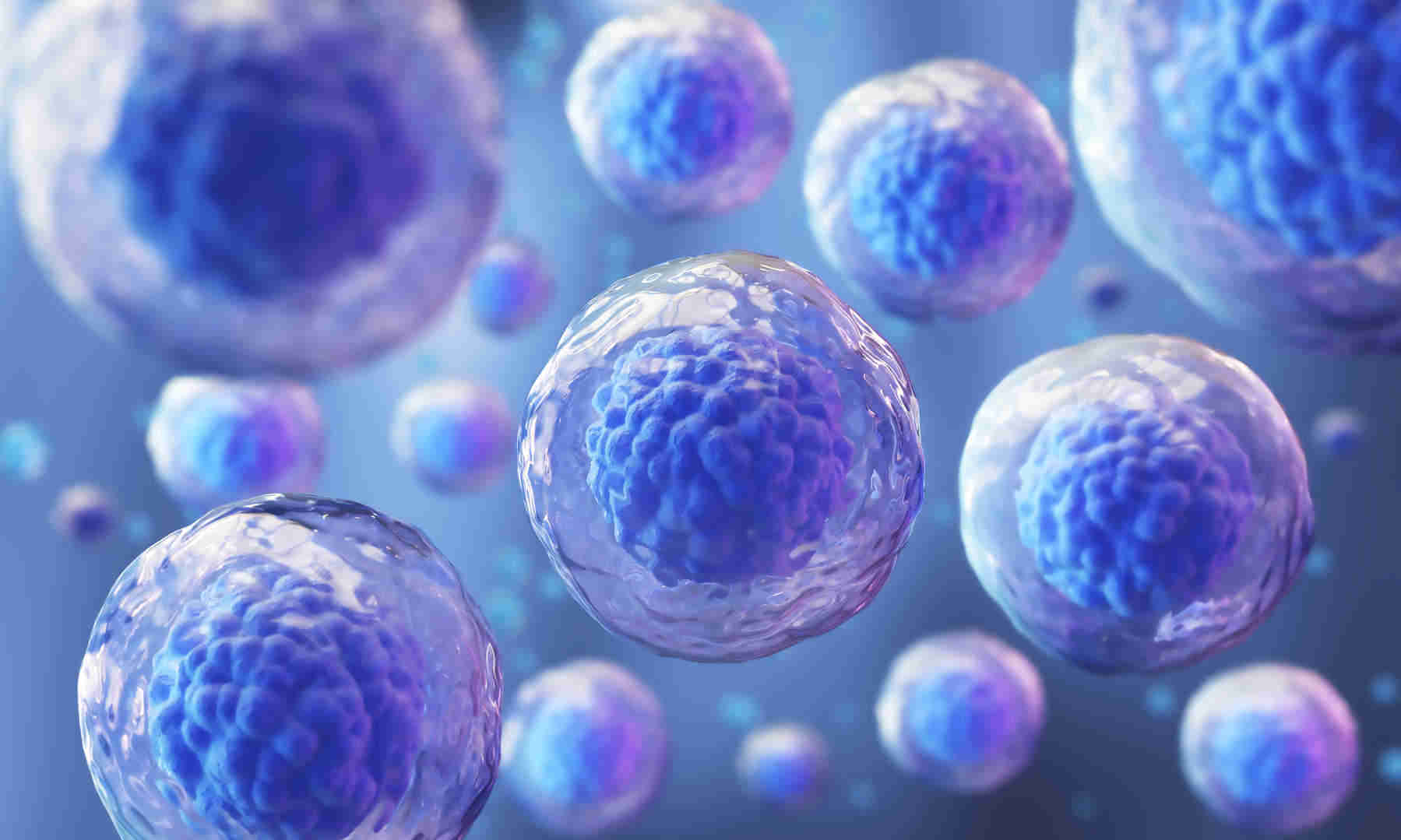Immune-Mediated Liver Diseases
Immune-mediated liver diseases are chronic inflammatory disorders driven by dysregulated immune responses, often progressing to irreversible liver damage despite current therapies. Protheragen advances targeted therapeutic development through preclinical services that combine mechanistic research, biomarker discovery, and candidate validation in immunologically relevant models, fostering collaborative innovation to address unmet clinical needs.
Disease Characteristics
Immune-mediated liver diseases are chronic inflammatory disorders characterized by aberrant immune responses targeting hepatic tissues, leading to progressive liver injury, fibrosis, and potential cirrhosis. These conditions exhibit heterogeneous pathological mechanisms and clinical trajectories, often requiring lifelong management with limited therapeutic options. Current treatments primarily aim to modulate immune activity or slow disease progression, underscoring the need for targeted therapeutic innovation.
Below we outline the key characteristics of the major immune-mediated liver diseases:
| Disease | Key Pathology | Immune Markers | Therapeutic Strategies |
|---|---|---|---|
| Autoimmune Hepatitis | T-cell-mediated hepatocyte destruction | ANA, SMA, anti-LKM1 | Immunosuppression, symptom control |
| Primary Biliary Cholangitis | Bile duct injury via cytotoxic lymphocytes | Anti-mitochondrial antibodies | Bile acid modulation, immune modulation |
| Primary Sclerosing Cholangitis | Fibroinflammatory bile duct strictures | pANCA, anti-GP2 | Supportive care, transplant evaluation |
 Fig1. Lymphocyte recruitment across the hepatic sinusoid, post-endothelial migration and localisation of cells in autoimmune hepatitis and cholangiopathies. (Bozward, et al., 2025)
Fig1. Lymphocyte recruitment across the hepatic sinusoid, post-endothelial migration and localisation of cells in autoimmune hepatitis and cholangiopathies. (Bozward, et al., 2025)Clinical Challenges
Immune-mediated liver diseases present multifaceted clinical hurdles, marked by diagnostic uncertainties, limited therapeutic efficacy, and heterogeneous disease progression. Persistent gaps in understanding immune dysregulation, coupled with inadequate preclinical models, hinder the development of targeted interventions. Key challenges include:
- Diagnostic Limitations
Current approaches lack reliable biomarkers for early detection or subtype stratification, resulting in delayed or inaccurate diagnoses.
- Therapeutic Inadequacy
Existing therapies often fail to address disease heterogeneity, with suboptimal response rates in refractory patients and risks of systemic immune suppression.
- Disease Heterogeneity
Variability in clinical presentation and progression complicates standardized treatment protocols, necessitating personalized strategies.
- Translational Research Barriers
Most preclinical models inadequately mimic human-specific immune pathology, limiting the translational relevance of therapeutic candidates.
 Fig2. Imaging of magnetic resonance cholangiopancreatography (MRCP) from primary sclerosing cholangitis (PSC). (Chen, et al., 2025)
Fig2. Imaging of magnetic resonance cholangiopancreatography (MRCP) from primary sclerosing cholangitis (PSC). (Chen, et al., 2025)Therapeutic Trends
Recent advancements in immune-mediated liver disease research have been propelled by breakthroughs in immunology and molecular profiling, driving a shift toward targeted therapeutic strategies. Key emerging trends include immune checkpoint modulation, exemplified by anti-PD-1/CTLA-4 agents showing potential in primary sclerosing cholangitis (PSC), and B-cell depletion therapies like rituximab undergoing rigorous evaluation for autoimmune hepatitis (AIH). Concurrently, microbiome-directed interventions such as fecal microbiota transplantation are gaining traction to address PSC-associated dysbiosis, reflecting growing recognition of gut-liver axis interactions. These developments are complemented by novel biomarker discovery enabling earlier diagnosis and treatment personalization. While preclinical models and early-phase trials demonstrate mechanistic promise, ongoing research prioritizes optimizing safety profiles and validating clinical efficacy through controlled studies.
Our Services

Disease Modeling & Mechanistic Insights
We employ humanized mouse models, including CD34+ NSG mice reconstituted with patient-derived PBMCs for autoimmune hepatitis (AIH) studies and NOD.c3c4 mice to replicate primary biliary cholangitis (PBC)-like biliary injury. Patient-derived cholangiocyte-immune coculture systems enable functional drug screening for primary sclerosing cholangitis (PSC). Multi-omics profiling, such as single-cell RNA sequencing of liver-infiltrating lymphocytes and TCR/BCR repertoire analysis, deciphers immune cell dynamics and disease progression mechanisms.

Therapeutic Screening & Validation
Our platform evaluates immunomodulators in AIH models and optimizes FXR agonist regimens for PBC. Bile acid-targeted therapies, including norUDCA and next-generation FXR modulators, are tested in Mdr2-/- mice modeling PSC. We perform high-throughput compound screening with integrated pharmacokinetic and efficacy assessments to identify promising candidates.

Biomarker Discovery & Translational Support
We validate autoantibody epitopes via phage display and quantify fibrosis progression using ELF testing and collagen hybridizing peptide (CHP) imaging. Gut-liver axis interactions are analyzed through 16S rRNA sequencing of stool and liver samples. These services support biomarker-driven clinical trial design and patient stratification strategies.

Advanced Cell & Gene Therapy Development
We develop Treg expansion protocols to restore immune tolerance in AIH and engineer CAR-T therapies targeting bile duct-specific autoantigens. Gene therapy solutions include vector design and AAV delivery systems, validated through rigorous preclinical safety/efficacy studies. Our end-to-end preclinical pipelines ensure translational relevance for cell and gene therapies.
We provide a comprehensive preclinical research platform addressing critical challenges in immune-mediated liver diseases (IMLDs), integrating advanced disease modeling, mechanistic insights, and therapeutic innovation. Our services bridge translational gaps through rigorous scientific validation, spanning from pathogenesis studies to clinically actionable solutions. If you are interested in our services or would like to learn more, please feel free to contact us.
FAQs?
-
Q: What types of immune-mediated liver diseases do you focus on?
A: Our research specializes in autoimmune hepatitis (AIH), primary biliary cholangitis (PBC), and primary sclerosing cholangitis (PSC).
-
Q: How long does it take to complete a biomarker discovery project?
A: Project timelines depend on experimental scope and technical requirements. Most biomarker discovery initiatives require 3 to 6 months for completion.
-
Q: Can you assist with cell therapy development?
A: We provide end-to-end cell therapy development support, encompassing cell line optimization, primary cell engineering, preclinical safety/efficacy evaluations, and regulatory testing frameworks.
-
Q: What technologies support your disease mechanism studies?
A: Our methodology integrates advanced analytical platforms including mass spectrometry, nuclear magnetic resonance (NMR), and high-throughput sequencing for mechanistic investigations.
References
- Bozward AG.; et al. Cellular interactions in self-directed immune-mediated liver diseases. J Hepatol. Published online January 8, 2025.
- Chen Y.; et al. Clinical management of autoimmune liver diseases: juncture, opportunities, and challenges ahead. Immunol Res. 2025;73(1):67.
All of our services and products are intended for preclinical research use only and cannot be used to diagnose, treat or manage patients.
